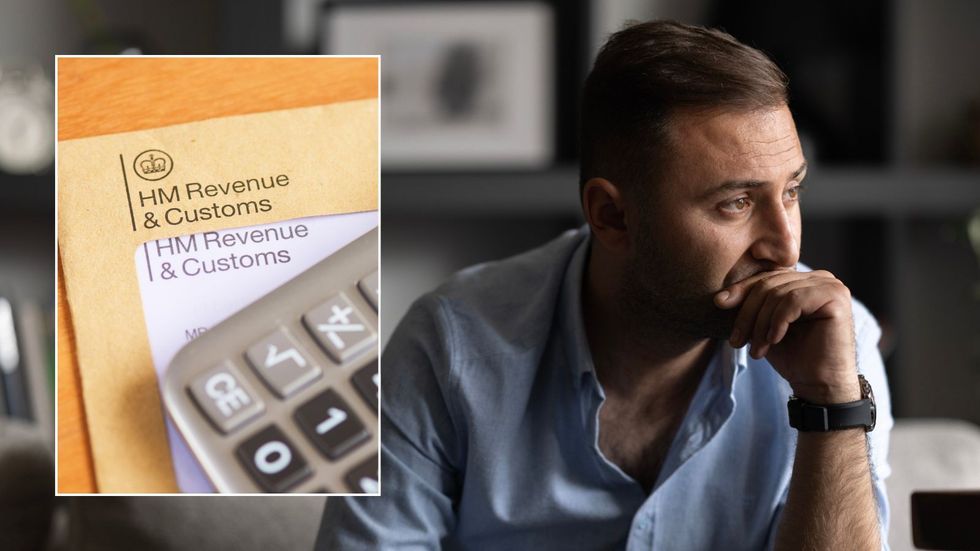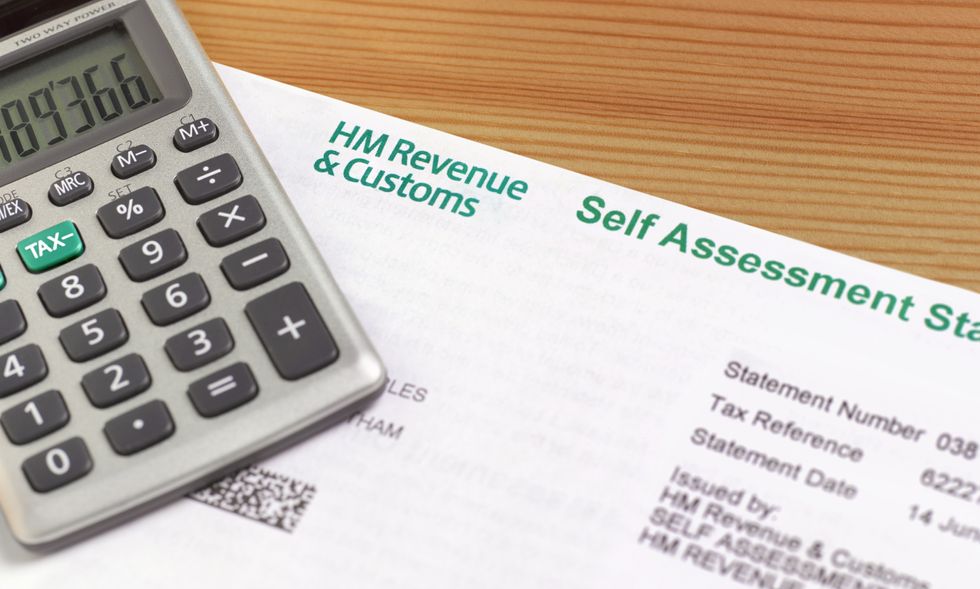HMRC clampdown could hit taxpayers with £900 fine - how to avoid 'paying more tax than necessary'

The tax authority is slapping Britons with additional fines if people fail to file their self-assessment tax return on time
Don't Miss
Most Read
Self-assessment taxpayers in Britain face escalating penalties from tomorrow (May 1) as daily £10 fines begin for late tax returns.
The new charges come after the initial £100 penalty that late filers have already incurred with taxpayers being urged to file as soon as possible.
"With daily £10 penalties kicking in from tomorrow for those who still haven't submitted their self-assessment tax return, the pressure is rising," warns Claire Trott, Head of Advice at St. James's Place.
These daily fines could potentially add up to £900 over the next three months if returns remain outstanding, analysts warn.

HMRC is slapping taxpayers with hefty fines
|GETTY
The £10 daily penalties will continue for 90 days, potentially costing late filers an additional £900. Further penalties await those who continue to delay.
"Further penalties of five per cent of the tax due or £300 (whichever is greater) will apply at both the six month and 12 month mark for those who still haven't filed," explains Trott.
It should be noted that anyone registered for self-assessment must submit a return regardless of whether they owe tax.
"It's important to note that anyone who is currently registered for self assessment is required to submit a return, whether they owe tax or not," Trott adds.
Do you have a money story you’d like to share? Get in touch by emailing money@gbnews.uk.

Rachel Reeves is clamping down on tax cheats
| GETTYWhile submitting a tax return now won't erase penalties already accrued, it will prevent further fines from accumulating.
"The quickest and simplest way to do this is to complete HMRC's online form," advises Trott. She cautions against rushing the process despite tomorrow's deadline.
"The most important thing is not to rush the return process as this could cause you to leave out vital information that could result in paying more tax than necessary."
HMRC's website offers guidance for those completing returns independently. Trott highlights several often-overlooked tax relief opportunities that could reduce your bill.
"Gift Aid payments can reduce your tax bill but you'll need to specify them in your form," she notes. Many people don't realise subscriptions to organisations like the National Trust, Wildlife Trust, and English Heritage qualify.
Museum entry fees, zoo tickets, and Facebook Giving donations also fall under Gift Aid. For the tax year to April 2024, as much as £1.57billion of tax relief was given to donors, with around £690million paid in higher rate tax relief.
LATEST DEVELOPMENTS:

Self-employed individuals need to file their tax returns
| GETTYBusiness mileage is another area where taxpayers can claim relief. "If you travel for business reasons and your employer doesn't cover the full allowable cost, you should claim a mileage allowance on your Self-Assessment return," advises Trott.
Drivers can claim 45p per mile for the first 10,000 miles travelled. This drops to 25p per mile thereafter. Detailed records of business journeys must be maintained throughout the year.
"You can't claim for travel to and from your work, unless it's a temporary place of work," Trott explains.
Work-related clothing expenses can also provide tax relief opportunities.
"While you're not allowed to claim the contents of your entire work wardrobe as an allowable expense, there are certain items of clothing you can claim," Trott advises.
These include specific uniforms and protective clothing required for work. Safety boots and overalls qualify if not provided by your employer.










